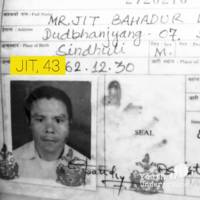
Jit Bahadur Lungeli
There are an estimated 4,000 people living in modern slavery in Qatar (GSI 2018). Qatar is a destination country for men and women subjected to forced labour and, to a much lesser extent, forced prostitution. Men and women from Nepal, India, Pakistan, Bangladesh, the Philippines, Indonesia, Sri Lanka, Sudan, Kenya, Nigeria, Uganda, and other countries voluntarily migrate to Qatar as unskilled laborers and domestic workers, often paying illegal and exorbitant fees to unscrupulous recruiters in the labour-sending countries, thereby increasing their vulnerability to debt bondage. Some workers subsequently face conditions indicative of involuntary servitude, to include restricted movement, payment withholding, passport confiscation, exit permit retention, and threats of deportation or abuse. Individuals in Qatar sell visas to migrants and occasionally demand regular payments, enabling migrant workers to work illegally and without legal recourse against their respective sponsors, although reportedly this trend is on the decline. Jit Bahadur Lungeli travelled for from Nepal to Qatar for work where he was trafficked into forced labour. Jit was forced to live in a labour camp in cramped conditions with little access to food. When Jit tried to leave after learning about the death of his son, his employer told him he would have to refund him remuneration and the visa fee.